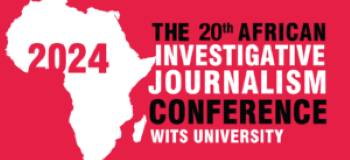By Mary Joseph
One of the most contemporary issues of debate and discourse in Nigerian society has been the issue of women’s agitations on the need for them to be included in political affairs and the decision-making process of the political realm.
This movement has rocked the entire media space and even men are showing solidarity and support for women to break this impediment.
The 2022 International Women’s Day (IWD) strikes yet another significant interest as multitudes of women and men on their social media pages posted several pictures of crossing their arms as solidarity and commitment to breaking inequality, gender discrimination, and smashing the wrong delusions that women cannot lead a nation.
The theme, #breakingthebias was led out as a unanimous call and message to kick against women being relegated from the front view of political race and participation.
The movement has been a right call by the right people. However, the recent events at the National Primaries of both the All progressive congress, APC, and that of the People’s Democratic Party, PDP respectively have shown that Nigerian women are far from achieving the dream of women’s involvement in politics.
Despite demanding at least 35 percent of women’s representation in both elective and appointive positions. The story never ceases to change from the stagnant position as the turnout of women both at Eagles Square and the MKO Abiola International Stadium, Abuja reflected the true picture that Nigerian women’s activism is only bounded on social media pages. No actions, no results, and the seeming patriarchal practices inherently in the green-white-green pendant society may never change anytime soon.
The Gender Strategy Advancement International, GSAI, in a report revealed that women’s political participation in Nigeria falls below the world and African continental standards. This report also gives out statistical data that the national average of women’s political participation in Nigeria remains at 6.7 percent in elective and appointive positions, which is said to be far below the global average of 22.5 percent, Africa’s regional average of 23.4 percent and West African Sub Regional Average of 15 percent.
Despite the rampage to right issues of the poor resource allocation in the economic and social sectors, low representation of women in governance and politics; inadequate legal framework, and as well as inadequate inclusion of women and girls’ perspectives in policy-making decisions. Things continue to fall into improper fractions as Nigeria is ranked 181 out of 193 countries on the Gender Equality Index, for countries with low women representation in governance
Perhaps, the question should be put forth to examine if Nigerian women are truly ready to support their fellow women?
Taking a stringent look at the performances of women at the just concluded primaries shows that the eagle in them is not ready to sour higher. The only female aspirant of the People’s Democratic Party, PDP, Olivia Terelia from Delta state, who gave an outstanding performance amongst all the aspirants by delivering her speech in less than two minutes, highlighted the importance of the local arm of government in the development and growth of any nation.
With such an impressive manifesto, she was able to secure only one vote which left the whole nation wondering, where are the female delegates who rallied around the National Assembly’s premises and on social media for women to be given the free will to participate in politics?
Similarly, Barrister Uju Ohanenye, the only female presidential aspirant of the All Progressives Congress (APC), during the presidential primaries announced her withdrawal from the presidential race by declaring her support for ex-Lagos state Governor, Bola Tinubu.
If wishes were horses, beggars will ride. These and many more have revealed that Nigerian women are not ready to challenge the status quo.
While gender equality remains a core part of fundamental human rights. Women’s participation has wiped off the annual movement of the (IWD) message and mission to eradicate the long preceptorial, and patriarchal society where men rule at every inch of corners.
The way forward? Women should take actions!


























Inspiring
I love this.